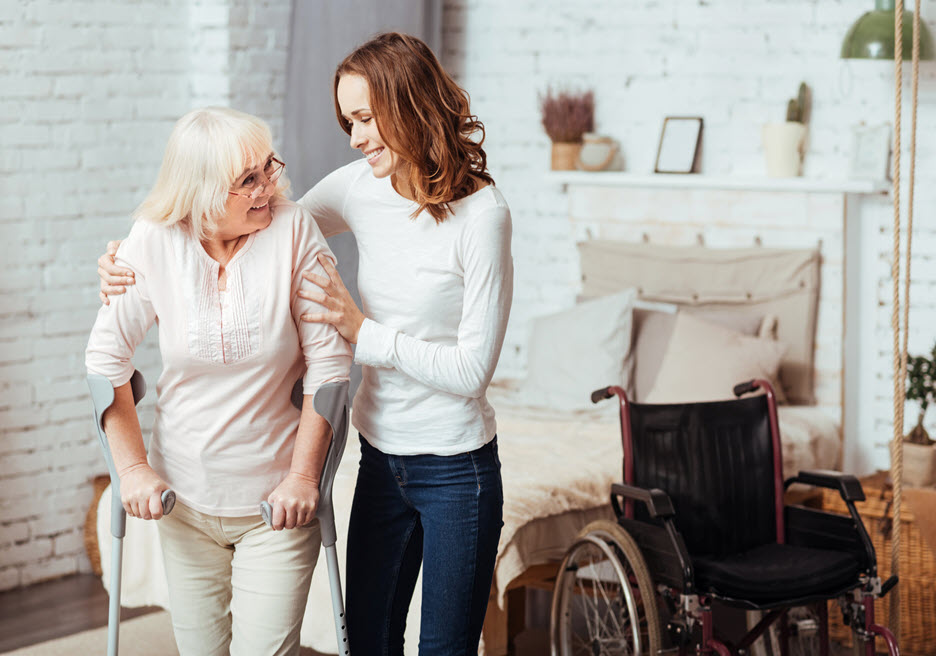Can Home Care Help a Senior Manage Their Fall Risk?
According to the Centers for Disease Control and Prevention, an elderly adult falls in the United States every second. This makes falls the leading cause of serious injuries among seniors. Each year, more than 27,000 seniors die as a result of injuries sustained from a fall, making it the leading cause of injury-related death among seniors. As a family caregiver, these statistics should illustrate the severity of fall risk and how it important it is to take steps to help prevent your parent from falling so that they do not suffer the potentially extreme consequences of such incidents. Starting home care for them can be a fantastic way to help you accomplish this goal.
Some ways that home care can help a senior manage their fall risk include:
- Mobility assistance. Not being able to move around the home confidently can be challenging and result in a fall if your loved one is trying to use home features such as stairs. This also applies to when they are out of their home and participating in activities or going on errands. A care provider can provide support to help your parent walk around more confidently and avoid trips, slips, stumbles, and falls.
- Transfer assistance. Something as seemingly simple as getting up from a chair or getting in and out of a vehicle can be very difficult for an elderly adult with mobility issues. A care provider can help them with transferring tasks such as sitting, standing, and getting in and out of bed or a vehicle so that your parent can handle these tasks safely.
- Personal care tasks. Some of the first issues that elderly adults often have involve the bathroom. By nature of the tasks completed in this room, it is the location of a large percentage of the falls that elderly adults suffer in the home. A care provider can help your parent through crossing a slippery floor, stepping in and out of the shower, sitting onto and standing from the toilet, and the tasks of bathing or showering to help them complete these tasks with lower risk of slipping or losing their balance and falling.
- Home modifications. While much of the assistance that a care provider will provide for your parent to help reduce the risk that they will fall includes helping them physically, there are also ways that they can reduce this risk in the home itself. Meaningful steps such as clearing walkways, keeping the home tidy, helping them clean up spills as soon as they happen, and ensuring that the only items that they reach out for to use as support are stable.
Starting home care for your aging parent can be one of the best decisions that you can make for them during your time as their family caregiver. Whether your parent’s needs are extensive and require care and assistance with virtually all of their needs and challenges, or they only have minor needs but would benefit from some support and basic assistance, an in-home senior care services provider can make a tremendous difference in your senior’s life. By being with your parent on a customized schedule, this care provider can help to ensure that they get all of the services that they need while also keeping you at the forefront of their care routine. This means that your parent is able to stay safe, healthy, and comfortable while also pursuing a lifestyle that is more active, engaged, and fulfilling. Services such as helping them with their activities of daily living and personal care tasks, providing safe and reliable transportation, and encouraging them to seek out activities throughout the community can help them to maintain more independence and quality of life as they age in place.
If you or an aging loved one are considering elder care in Abington, PA, contact the caring professionals at Reliant At Home Care today (610) 674-6860 .







